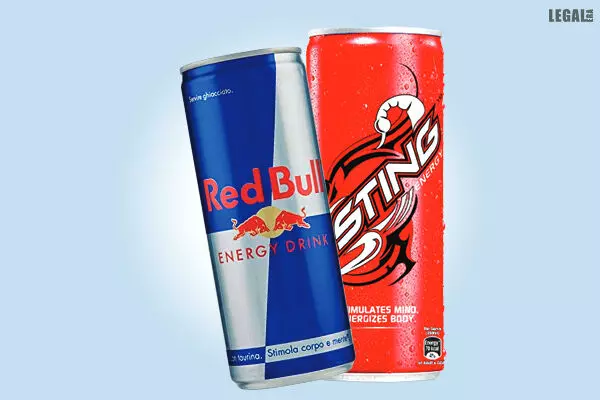- Home
- News
- Articles+
- Aerospace
- Agriculture
- Alternate Dispute Resolution
- Banking and Finance
- Bankruptcy
- Book Review
- Bribery & Corruption
- Commercial Litigation
- Competition Law
- Conference Reports
- Consumer Products
- Contract
- Corporate Governance
- Corporate Law
- Covid-19
- Cryptocurrency
- Cybersecurity
- Data Protection
- Defence
- Digital Economy
- E-commerce
- Employment Law
- Energy and Natural Resources
- Entertainment and Sports Law
- Environmental Law
- FDI
- Food and Beverage
- Health Care
- IBC Diaries
- Insurance Law
- Intellectual Property
- International Law
- Know the Law
- Labour Laws
- Litigation
- Litigation Funding
- Manufacturing
- Mergers & Acquisitions
- NFTs
- Privacy
- Private Equity
- Project Finance
- Real Estate
- Risk and Compliance
- Technology Media and Telecom
- Tributes
- Zoom In
- Take On Board
- In Focus
- Law & Policy and Regulation
- IP & Tech Era
- Viewpoint
- Arbitration & Mediation
- Tax
- Student Corner
- AI
- ESG
- Gaming
- Inclusion & Diversity
- Law Firms
- In-House
- Rankings
- E-Magazine
- Legal Era TV
- Events
- News
- Articles
- Aerospace
- Agriculture
- Alternate Dispute Resolution
- Banking and Finance
- Bankruptcy
- Book Review
- Bribery & Corruption
- Commercial Litigation
- Competition Law
- Conference Reports
- Consumer Products
- Contract
- Corporate Governance
- Corporate Law
- Covid-19
- Cryptocurrency
- Cybersecurity
- Data Protection
- Defence
- Digital Economy
- E-commerce
- Employment Law
- Energy and Natural Resources
- Entertainment and Sports Law
- Environmental Law
- FDI
- Food and Beverage
- Health Care
- IBC Diaries
- Insurance Law
- Intellectual Property
- International Law
- Know the Law
- Labour Laws
- Litigation
- Litigation Funding
- Manufacturing
- Mergers & Acquisitions
- NFTs
- Privacy
- Private Equity
- Project Finance
- Real Estate
- Risk and Compliance
- Technology Media and Telecom
- Tributes
- Zoom In
- Take On Board
- In Focus
- Law & Policy and Regulation
- IP & Tech Era
- Viewpoint
- Arbitration & Mediation
- Tax
- Student Corner
- AI
- ESG
- Gaming
- Inclusion & Diversity
- Law Firms
- In-House
- Rankings
- E-Magazine
- Legal Era TV
- Events
Delhi High Court rejects Red Bull's suit against PepsiCo

Delhi High Court rejects Red Bull's suit against PepsiCo
The case was filed in 2018 and the matter will be placed before the roster bench on May 9
The Delhi High Court has dismissed Red Bull's injunction application against PepsiCo India Holding from using the tagline 'Stimulates Mind, Energizes Body' while selling its energy drink 'Sting'. The suit claimed that the tagline used by PepsiCo was deceptively similar to Red Bull's tagline 'Vitalizes Body and Mind.'
Justice Amit Bansal held, "Whether the aforesaid tagline of the plaintiff has acquired distinctiveness or secondary meaning in respect of the plaintiff's products can only be established at the stage of the trial. Balance of convenience is also in favor of the defendants for not granting an interim injunction as the products of the defendants have been selling in the market with the impugned tagline for almost five years. Hence, the application is dismissed."
Red Bull had claimed that it had been selling energy drinks under the trademark and the tagline since its inception in 1987. It argued that the trademark had become a source identifier of Red Bull products and it had acquired distinctiveness.
However, PepsiCo contended that the layout of the cans of the two products was totally different, therefore, the question of deception did not arise. It stated that it had challenged the registration granted to Red Bull for the tagline on the ground that it was in contravention of the Trade Marks Act, as the tagline was completely descriptive.
Justice Bansal held that the two cans were totally different with the brand names 'Red Bull' and "Sting' prominently displayed on the cans. Also, the color scheme and the fonts were different on both the products.
He stated, "It is apparent that no confusion or deception would be caused to the customers of both the parties in respect of their products. Therefore, in my prima facie view, no case of passing off is made out."
On the issue of infringement, he said that though the tagline of Red Bull was granted registration in India in 2010, it was of a laudatory character, which ought not to have been granted registration in view of the Trade Marks Act.
While declaring that the PepsiCo tagline was a phrase or an expression consisting of four words of the English language, the court said that its aim was to describe the features and quality of its drink.
"In comparison to the brand name of the defendants' product, 'Sting', which is displayed prominently on the cans, the impugned tagline only appears in a small font. Furthermore, the defendants have not sought any registration in respect of the aforesaid tagline. Therefore, I do not accept the contention of the plaintiff that the defendants are using the impugned mark in a manner that is likely to be taken as being used as a trademark. Resultantly, no infringement has been committed by the defendants in terms of the Trade Marks Act," Justice Bansal ruled.
While Advocates Anirudh Bakhru, Abhishek Singh, Naqeeb Nawab, Himanshu Deora, Raghav Vig and Yashwardhan Singh appeared for Red Bull, PepsiCo was represented by Senior Advocate Sudhir Chandra and Advocates Dheeraj Nair and Shruti Dass.



